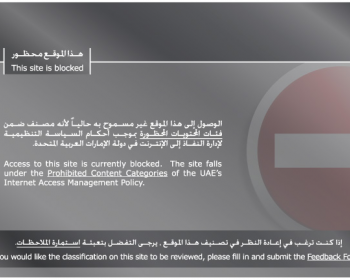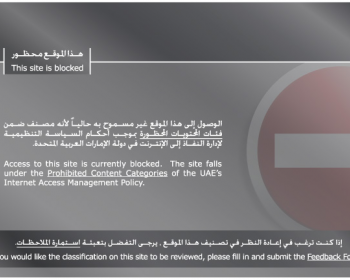censorship
If implemented, the Draft Online Regulation Policy proposed by the South African Film and Publication Board would, under the guise of child protection, pose serious threats to online freedom of expression. APC joins the many South African civil society and broader communications sector voices that are expressing their concern about the proposed regulations.
The Association for Progressive Communications (APC) strongly condemns the Turkish government for amending a law that tightens internet censorship. The law, which now grants the Telecommunications Directorate (TIB) extensive powers to block access to websites without a court order, comes on the heels of the Internet Governance Forum (IGF) in Istanbul on 2-5 September 2014.
<p>“<a href="http://commons.wikimedia.org/wiki/File:VAE_Websitesperre.png#mediaviewer... class="caps">VAE</span> Websitesperre</a>“ by Government of <span class="caps">UAE</span> – Skype accessed from <span class="caps">UAE</span>. Licensed under Public domain via <a href="//...
On the eve of the IGF in Istanbul, 1 September 2014, APC, Tactical Tech and Web Foundation host a dynamic, peer-learning event on censorship and circumvention, problems and solutions for internet rights.
On February 5, 2013 the Philippines Supreme Court extended until further notice the temporary restraining order issued on the implementation of the controversial Republic Act 10175 or the Cybercrime Prevention Act of 2012. This sets a milestone for organisations and individuals advocating for internet rights.
The Association for Progressive Communications today released a new resource “Digital security first-aid kit for human rights defenders.” It is an interactive website publication available online at http://rights.apc.org/infosec
At 10:26 UTC on November 29th, Syria’s international internet connectivity was shut down. APC strongly condemns this shut down, which threatens the safety and security of the Syrian people, and clearly violates international human rights law.
Human rights and the internet are referred to in the founding documents on the United Nations World Summit of the Information Society, the Geneva Declaration of Principles and the Internet Governance Forum. During 2011 it became clear that the UPR must include the promotion and protection of human rights and fundamental freedoms on the internet, particularly freedom of expression and freedom of...
The Spear is a painting that depicts the South African president Jacob Zuma in a rallying pose, with genitals exposed. It has caused controversy and been defaced. Images of the painting have gone viral on internet. In late May 2012, the South African Film and Publications Board classified the painting, as not suitable for people under the age of 16. But in a country where one in four women is r...
The OpenNet Initiative released its 2011 Year in Review, a collection of the year’s top instances of filtering, surveillance, and information warfare around the globe. The spotlight was on the SOPA and PIPA bills in the US and on Asian and Middle Eastern countries and regimes as well as European and American companies for their role in internet censorship.

Association for Progressive Communications (APC) 2022
Unless otherwise stated, content on the APC website is licensed under Creative Commons Attribution 4.0 International (CC BY 4.0)





